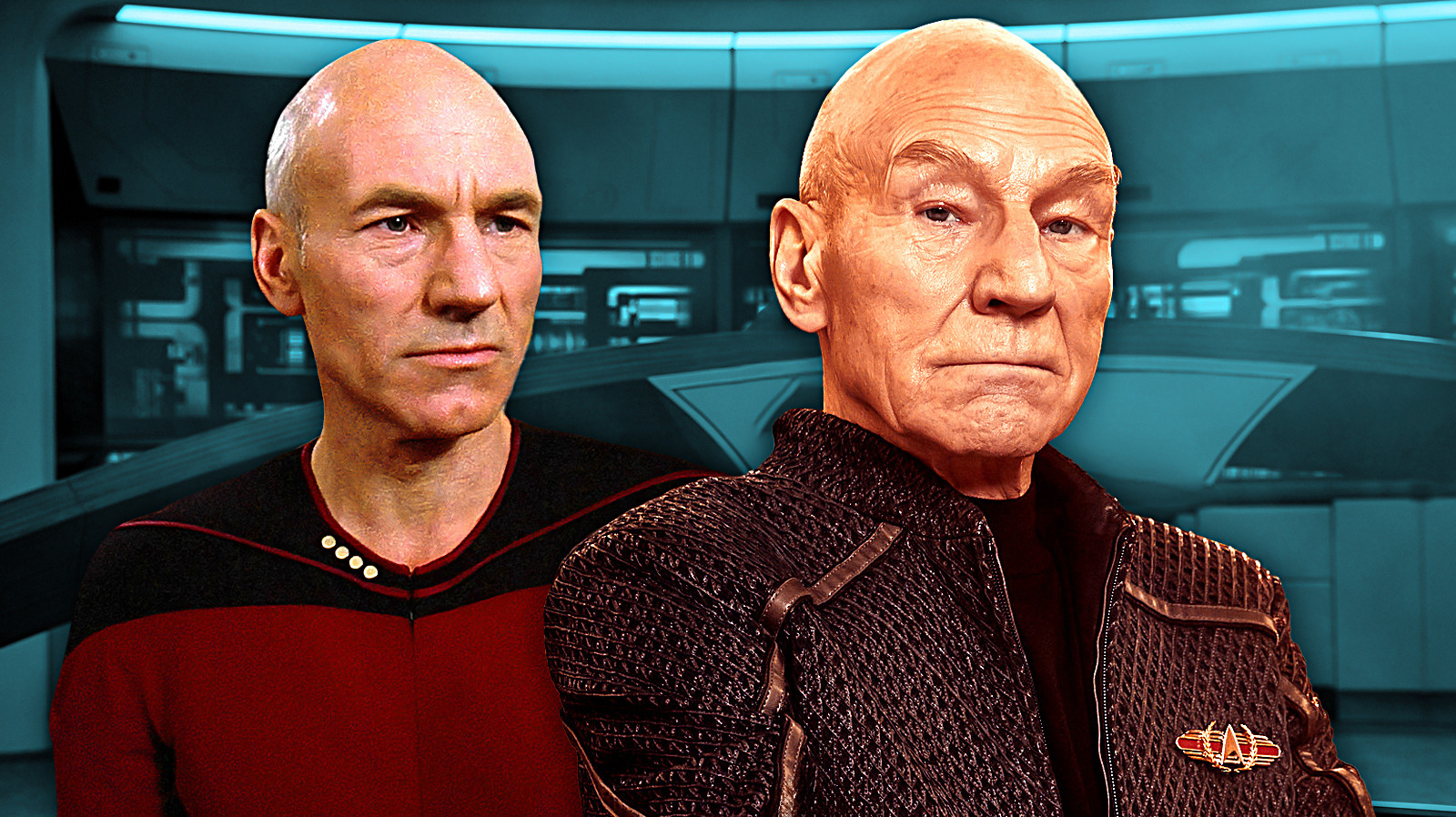
Patrick Stewart Wants A Star Trek Movie To Delve Into Picard’s Complexity
The saga of “Star Trek: Picard” concluded its third and final season with a heartwarming finale. Jean-Luc Picard, portrayed by Patrick Stewart, successfully reunited with his long-lost son Jack, and enjoyed a nostalgic moment with his former colleagues from the Enterprise-D. Although decades had passed since they served together, the bonds among Picard, Riker, Troi, Worf, Geordi, Dr. Crusher, and a new version of Data remained strong as they gathered for a friendly poker game. The closing credits hinted that these iconic characters would spend their remaining days in harmony. Picard, now in his golden years at around 100, appeared to have completed his journey. He had expressed a desire for new experiences rather than a legacy, seeing the third season as his farewell party, marking the end of his tenure as Jean-Luc Picard.
However, after the joy of the final season, Stewart has reconsidered his retirement from the role. He has indicated that he would be open to reprising Picard for a future film project, given the opportunity. In a recent interview, Stewart revealed that there are still unexplored layers to Picard’s character. While audiences have often seen him as a commanding presence, he believes it would be fascinating to uncover moments of vulnerability, fear, and uncertainty.
Stewart reflects on a scene from “Star Trek: Picard” where, amidst a tense situation on a starship, Picard found himself unable to act decisively. In that moment of crisis, he was paralyzed by confusion, unable to even ask for recommendations from his crew. This portrayal of an insecure Picard intrigued Stewart, who expressed a desire to analyze the inner turmoil of this renowned character. The complexities of fear, anger, and self-doubt within Picard present an opportunity for profound storytelling in a potential feature film.
Traditionally, “Star Trek” characters, particularly in “The Next Generation,” are depicted as steadfast and morally certain. However, portraying Picard grappling with his principles or facing the twilight of his life with feelings of regret could bring a fresh and dramatic evolution to the narrative. The concept of a deeply reflective Picard, possibly confronting a sorrowful demise, is both compelling and unsettling.
Stewart’s current perspective stands in contrast to earlier remarks he made regarding Picard’s fate. In his memoir, he shared that there was an additional scene planned for the “Star Trek: Picard” finale that would have provided a fitting conclusion to Picard’s journey. After the closing poker game, he envisioned Picard alone on his vineyard, gazing at a sunset until a voice from inside beckoned him for dinner, implying a life shared with a loving partner. While it remains uncertain whether that partner was Dr. Crusher or his Romulan housekeeper Laris, Stewart appreciated the notion of Picard having a companion in his later years—an optimistic closing chapter.
In the “Star Trek” universe, major characters typically experience heroic ends. Many, like Spock, Kirk, and Data, made noble sacrifices. In contrast, Picard’s potential exit marked by sadness or regret would defy the conventions of the franchise, offering a bold, even audacious, narrative approach. The possibility of confronting such a tragic and undignified farewell for Picard challenges the established norms of storytelling in this beloved sci-fi realm.




